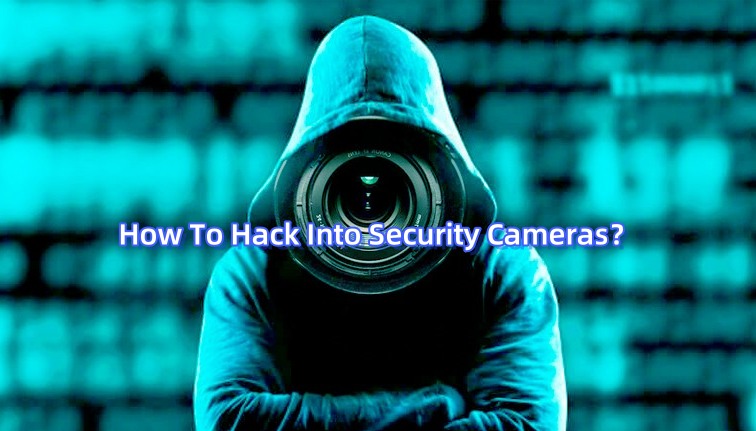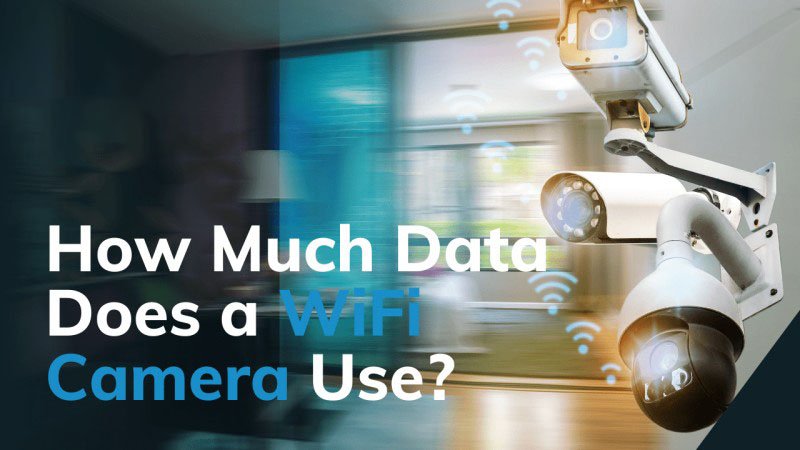Have you ever wondered whether it’s legal to record audio with security cameras? The answer isn’t always straightforward. It depends on where you are, who’s involved, and whether everyone consents. Some states make it simple, while others have strict rules. So, is it a violation of the law or just a grey area? Let’s dive into the details and find out!
Is Recording Audio On Security Camera Illegal?

Recording audio on security cameras involves legal issues, mainly due to federal and state wiretapping laws. In the United States, whether recording is illegal depends on the location, the consent of the relevant individuals, and the setting of the recording.
1. Federal Wiretap Law and One-Party Consent
Federal law permits audio recording with one-party consent, which means that it is generally legal under federal law to record a conversation as long as you are either a participant in that conversation or at least one of the participants has consented to the recording. States That Allow One-Party Consent Twenty-one states and the District of Columbia have laws siding with one-party consent including Alabama, Virginia, Wyoming, and California.
- If you are part of the conversation, you do not have to inform the other person that you are recording.
- If you are not a party to the conversation, then you will have to get consent from at least one person.
2. State Laws: One-Party Consent vs. All-Party Consent
While federal law supports one-party consent, states have their regulations. 35 states and Washington, D.C. follow one-party consent being sufficient to make a recording legal, which gives rise to conceptions of a voiceless rule on confidentiality; only a reasonable amount of states require the silent agreement. 15 states require all-party consent, meaning all proverbial mouths must agree to be recorded, including:
- California
- Connecticut
- Delaware
- Florida
- Illinois
- Maryland
- Massachusetts
- Montana
- Nevada
- New Hampshire
- Pennsylvania
- Vermont
- Washington
- Oregon
- Michigan
3. Special Considerations
-
California: In California, recording without the consent of all participants is considered a serious crime. Violators may face a fine of up to $2500.
-
Massachusetts: The state’s audio surveillance laws are very strict, requiring each participant’s explicit consent.
-
Connecticut: While in-person conversations can be recorded with one-party consent, telephone recordings require consent from all parties.
4. Penalties for Violating Surveillance Laws
Violating federal or state laws regarding audio surveillance can lead to serious consequences, including fines and imprisonment. Therefore, it is crucial to comply with both federal and state regulations. If in doubt, it’s advisable to seek legal advice. When recording, always consider the strictest laws, particularly in areas with higher privacy requirements.
For businesses and public spaces, consider posting clear signs to inform people that they are being recorded to avoid legal issues.

Privacy Expectations in Different Settings
1. Recording in Private Areas
Recording audio in private areas like bathrooms, bedrooms, or changing rooms is usually illegal. These spaces come with a high expectation of privacy. CCTV security cameras should only be placed in locations that respect privacy laws. For instance, states like California and Arkansas ban recording in private spaces without consent. In California, recording private conversations without permission is against the law.
2. Laws in Public Areas
In public areas, such as streets or outdoor spaces, recording video and sometimes audio is often allowed. However, laws vary by state, so it’s important to check local rules to ensure compliance.
3. Consent Requirements in the Workplace
Employers can record audio at work if they have clear consent policies. Without such policies, using hidden security cameras or recording audio secretly can violate the law. Many states specifically forbid hidden cameras in workplaces.
4. Notification Practices in Commercial Settings
In commercial areas, posting clear signs at entry points is a common way to inform people about audio surveillance. This practice usually implies consent and is widely accepted.
5. Reasonable Expectation of Privacy
The idea of reasonable expectation of privacy plays a key role in deciding whether recording is legal. In private spaces or areas within public settings where privacy is expected, audio recording generally requires explicit consent.
6. Recording Visitors and Guests
When visitors come to a home or workplace, their privacy should be respected. Video recording may not always need consent, but audio recording often does, especially in states with all-party consent laws.
Best Practices for Legal Compliance
1. Key Best Practices to Avoid Legal Issues
-
Post Clear Notices:
- Place signs to let people know that audio and video recordings are happening.
- This is especially important in public or business areas to inform customers and visitors.
-
Notify Employees:
- Employers should include audio recording policies in their employee handbooks.
- Have employees sign agreements to confirm their consent.
-
Respect Private Spaces:
- Avoid placing security cameras in private areas like bathrooms, bedrooms, or changing rooms.
- Recording in places where privacy is expected is usually illegal.
2. Importance of Legal Compliance
- Consult Legal Experts: Check with a lawyer before installing audio-enabled security cameras to ensure compliance with state and federal laws.
- Admissible Evidence: Make sure recordings are done legally to use them as evidence in court and avoid lawsuits.
Following these guidelines reduces risks and helps you benefit from audio-enabled security cameras responsibly.
Case Study: How ICSEEcam Cameras Can Help You Stay Compliant
ICSEEcam provides security cameras with customizable features to help businesses and homeowners comply with privacy laws. Features include:
- Audio Recording Options: Easily toggle audio recording on or off depending on your state’s laws.
- Notification Signs: Customizable stickers and signage are included with every purchase.
- Advanced Privacy Settings: Configure zones to exclude private areas, ensuring recordings only capture permissible spaces.
Conclusion
Recording audio on home security cameras can be legal or illegal depending on specific laws and context. Federal law typically requires one-party consent, which means you can record if you are part of the conversation or have consent. Thirty-five states and Washington, D.C. follow this rule, while twelve states, including California and Florida, require all-party consent. In public places, recording is usually allowed without consent, but it is illegal in private areas where privacy is expected. Employers can record audio in the workplace as long as they have proper notification and consent policies to protect employee privacy. Violating these laws can result in severe penalties, such as fines and imprisonment, and illegally recorded audio may not be accepted in court.
Key Considerations
- One-party Consent States
- All-party Consent States
- Workplace Privacy Regulations
- Implied Consent through Notification







